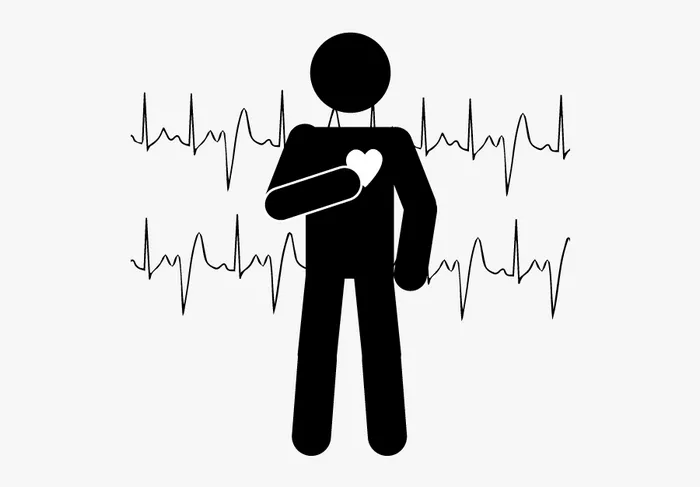Irregular heartbeat, medically known as arrhythmia, is a condition that affects the rhythm or rate of your heart’s beating. While many people may experience occasional irregular heartbeats without significant consequences, persistent or severe arrhythmias can pose serious health risks. In this article, we delve into the complexities of irregular heartbeats, exploring their potential impacts on health and discussing the measures individuals can take to manage and mitigate associated risks.
Understanding Irregular Heartbeat
1. Types of Arrhythmias: Irregular heartbeats can manifest in various forms, including atrial fibrillation, ventricular tachycardia, and bradycardia. Each type has distinct characteristics and potential implications for overall heart health.
2. Causes and Triggers: Irregular heartbeats can be triggered by several factors, such as underlying heart conditions (e.g., coronary artery disease, heart valve disorders), electrolyte imbalances, excessive alcohol or caffeine consumption, smoking, stress, and certain medications.
3. Symptoms: Common symptoms of irregular heartbeats may include palpitations (feeling of rapid or irregular heartbeat), dizziness, lightheadedness, chest pain or discomfort, shortness of breath, and fatigue. However, some arrhythmias may be asymptomatic and only detected during medical evaluations.
Risks Associated with Irregular Heartbeat
1. Stroke Risk: Certain arrhythmias, particularly atrial fibrillation, can increase the risk of stroke due to the formation of blood clots in the heart’s chambers. These clots can travel to the brain and block blood flow, leading to a stroke.
2. Heart Failure: Persistent irregular heartbeats can strain the heart muscle over time, potentially contributing to heart failure—a condition where the heart cannot pump blood effectively to meet the body’s needs.
3. Sudden Cardiac Arrest: In severe cases, specific arrhythmias like ventricular tachycardia or fibrillation can lead to sudden cardiac arrest, a life-threatening emergency requiring immediate medical intervention such as cardiopulmonary resuscitation (CPR) and defibrillation.
4. Reduced Quality of Life: Chronic arrhythmias may significantly impact an individual’s quality of life, causing distress, anxiety, and limitations in physical activities due to symptoms and concerns about potential complications.
Diagnosis and Treatment Options
1. Diagnostic Tests: Physicians may use various tests to diagnose irregular heartbeats, including electrocardiogram (ECG or EKG), Holter monitoring, event monitoring, echocardiogram, stress tests, and electrophysiology studies.
2. Medication: Depending on the type and severity of arrhythmia, healthcare providers may prescribe medications to regulate heart rhythm, control heart rate, prevent blood clots (anticoagulants), or manage underlying conditions contributing to arrhythmias.
3. Cardioversion: In some cases, cardioversion techniques (electrical or chemical) may be used to restore normal heart rhythm for individuals with persistent or recurrent arrhythmias.
4. Catheter Ablation: This minimally invasive procedure involves targeting and ablating (destroying) abnormal heart tissue responsible for causing arrhythmias, aiming to restore normal heart rhythm.
5. Implantable Devices: For individuals at high risk of sudden cardiac arrest, implantable devices such as pacemakers or implantable cardioverter-defibrillators (ICDs) may be recommended to monitor heart rhythm and deliver therapeutic interventions as needed.
Lifestyle Modifications and Prevention Strategies
1. Healthy Diet: Adopting a heart-healthy diet rich in fruits, vegetables, whole grains, lean proteins, and low in saturated fats, cholesterol, and sodium can support overall heart health and reduce the risk of arrhythmias.
2. Regular Exercise: Engaging in regular physical activity as recommended by healthcare professionals can help maintain cardiovascular fitness, improve heart function, and reduce stress—an important factor in managing arrhythmias.
3. Stress Management: Techniques such as mindfulness meditation, deep breathing exercises, yoga, and counseling can be beneficial in managing stress and its potential impact on heart rhythm.
4. Limiting Triggers: Avoiding or moderating consumption of alcohol, caffeine, tobacco, and illicit drugs known to exacerbate arrhythmias can contribute to better heart rhythm control.
Conclusion
While irregular heartbeats can vary in severity and impact, understanding their potential risks and adopting proactive measures is crucial for maintaining heart health and overall well-being. Regular medical check-ups, adherence to treatment plans, lifestyle modifications, and timely intervention in case of symptoms are key components of effective arrhythmia management. By prioritizing heart health and working collaboratively with healthcare providers, individuals can empower themselves to minimize the risks associated with irregular heartbeats and lead fulfilling lives.


